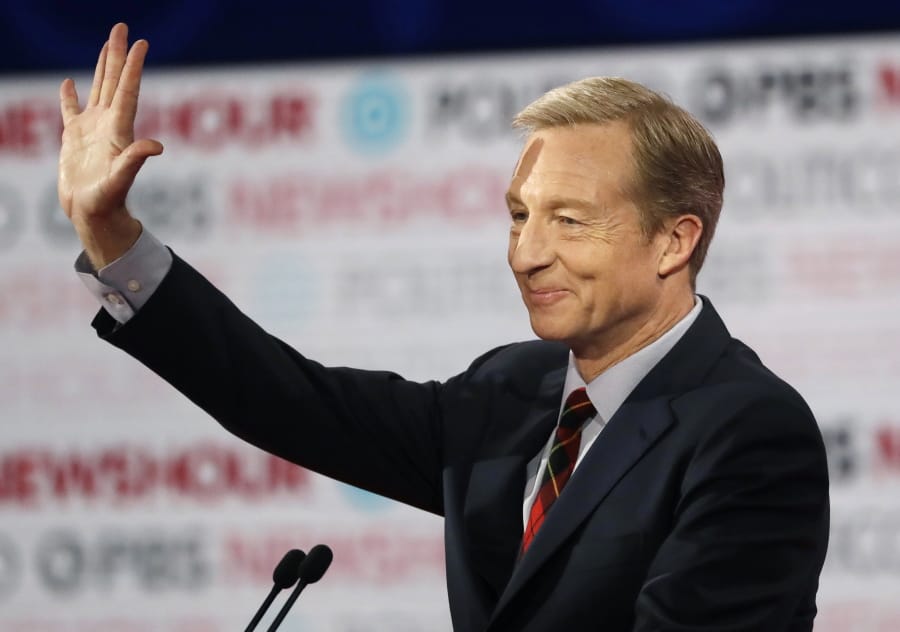WASHINGTON — Billionaires Michael Bloomberg and Tom Steyer are testing an unproven theory in the contest for the Democratic presidential nomination: that their vast personal wealth can buy the trophy.
Not since Texas businessman Ross Perot spent $63.5 million in 1992 (more than $100 million in today’s dollars) on his run for president as an independent have candidates for the White House banked so much on their massive fortunes alone on delivering results. Donald Trump spent about $65 million of his own money in 2016. Bloomberg has spent more than three times that amount in a little over two months.
Bloomberg, who founded a financial data and media company and served three terms as New York mayor, and Steyer, a California businessman, have saturated key primary states with hundreds of millions in TV and social media advertising. They’ve recruited top staff with above-market salaries while offering political figures and groups generous contributions as they work to build networks of support.
To the dismay of many in the party, it might work.
“People underestimate the billionaires at their own peril,” said Rebecca Katz, a progressive Democratic strategist. “Just because you have all the money in the world doesn’t mean you will win the nomination and become president. But it’s a hell of a head start.”
Democrats have long grappled with the sway the wealthy hold over politics, an issue that took on added gravity after the Supreme Court’s landmark 2010 Citizens United decision cleared the way for the flood of cash now coursing through the political system.
The party’s progressive wing sought to make the 2020 contest a referendum on the taint of big money in politics. They championed small online donations from the grassroots base as the purest indicator of voter enthusiasm.
Bloomberg and Steyer have turned that argument inside out by eliminating the need for donors altogether, though unlike Bloomberg, Steyer does accept campaign contributions.
“There is no question that the system is set up to benefit people who can self-fund,” said Jared Leopold, a senior adviser to Washington Gov. Jay Inslee, who dropped out of the race last summer after struggling to gain traction. “They are twisted rules, but that’s the reality.”
Bloomberg and Steyer flirted with presidential bids early last year but pulled back at the last minute. Yet after no clear front-runner emerged this cycle, Steyer, who is worth an estimated $1.6 billion by Forbes, entered the race in July. Bloomberg — whose net worth Forbes said is greater than $50 billion — announced his campaign in November.
By December, Steyer had spent more than $60 million on ads, according to the tracking firm Advertising Analytics. Bloomberg, meanwhile, crossed the $200 million ad spending threshold Friday morning, the firm announced, a sum that nearly surpasses the $222 million spent by the entire rest of the field.
For now, their big-money approach appears to be paying some dividends.
Steyer made waves Thursday when Fox News polls in Nevada and South Carolina measured his support in those states in double digits, though he fell well below that mark in national polls released in December, as well as in Iowa and New Hampshire.
Bloomberg has not focused his attention on the early primary and caucus states and has instead zeroed in on the larger delegate-rich states on Super Tuesday and later primaries. He has registered mid-single-digit support in national polls but has risen steadily along with his advertising. He has come in below former Vice President Joe Biden, as well as Vermont Sen. Bernie Sanders and Massachusetts Sen. Elizabeth Warren, but higher in some polls than either Steyer or some of the established candidates, including New Jersey Sen. Cory Booker.



